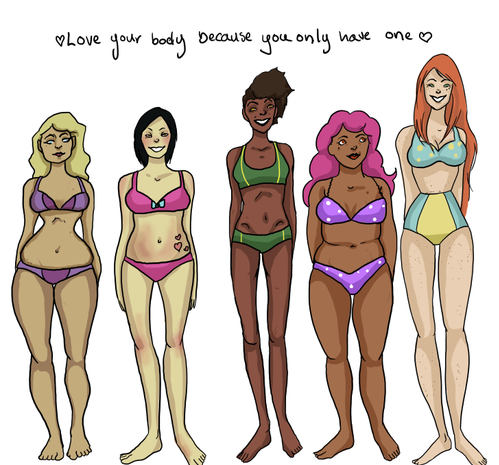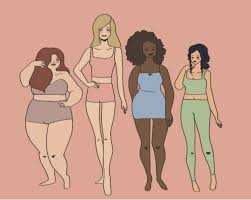The development of new media has enhanced networking, communication, and globalisation, creating a new world of social media where people typically share common trends and cultures. The impact that social media has made in the whole world is immeasurable. But social has contributed to the normalisation of body shaming. This is to say that this same medium is used to send disparaging remarks about people's appearances and to paint a picture of what the ideal body should look, be, and appear like; forming a stereotype of someone who is perceived differently in another's world.

With the rise of platforms like Facebook, Twitter, Instagram, and the others, where people often curate and showcase their best selves, there is increased pressure to look a certain way. This has led to an increase in online body shaming, where people are criticised and ridiculed for not fitting into society's beauty standards. Unfortunately, this type of behaviour comes with a lot of serious negative effects on people. It's important for individuals to be mindful of how they use social media and strive to create a more positive and accepting online community.
We are frequently bombarded with messages that suggest our bodies are substandard. Our complexion is too dark, our thighs are too huge, and our stomach is too big, just to mention a few. We are continually advised that we need to reduce weight, or vice versa, that is to gain more weight, our hair is too curly or blond. Our bodies are shown to us as having imperfections that need to be remedied.
Regrettably, this way of thinking is detrimental to both our physical and mental health. It can cause a variety of issues, including eating disorders, low self-esteem, leading to issues like anxiety, depression, body dysmorphic and body image disturbance.

Body shaming is likely to come in the form of comments about someone's skin tone, weight, hair colour and style, age, attractiveness, body hair, and more. Sometimes these types of body shaming are done purposefully or inadvertently, yet that is insufficient justification for body shaming or being subject to body shaming.
It is a well-known fact that there are numerous causes of body shaming. It sometimes serves as a coping mechanism for our own insecurities. We can think that we need to improve our bodies and that we aren't good enough. It can also be a strategy for persuading others to carry out our requests. We could believe that in order to have control over our lives, we must also have control over our bodies.
Everybody experiences periods of body shaming. It's normal to experience negative body image at times in our lives. It's very important to inspire others to value their bodies. You could start by loving yourself. You need to recognise your individuality and you should learn to accept your body. Again, you need to avoid comparing yourself to others. You should speak up if you or someone else is being subjected to body shaming.
One will realise that most of the things we are body shamed about are mostly natural or biological aspects of our lives, so why ridicule nature and make yourself or others feel less about themselves? The way we communicate to and about our bodies needs to change. It's time to start talking more intelligently and to compliment people on their physical attributes.
Finally, social media has significantly influenced how we view our bodies and the bodies of others. It has obviously increased options for self-expression and interpersonal interaction, but it has also helped body shaming become more commonplace. We must be conscious of the damaging effects this conduct may have on our mental health and work to foster an online community that is more supportive and inclusive. This entails being aware of the information we view and produce, as well as actively promoting body positivity and inclusivity on social media. We can make everyone's internet experience healthier and more encouraging by doing this.









